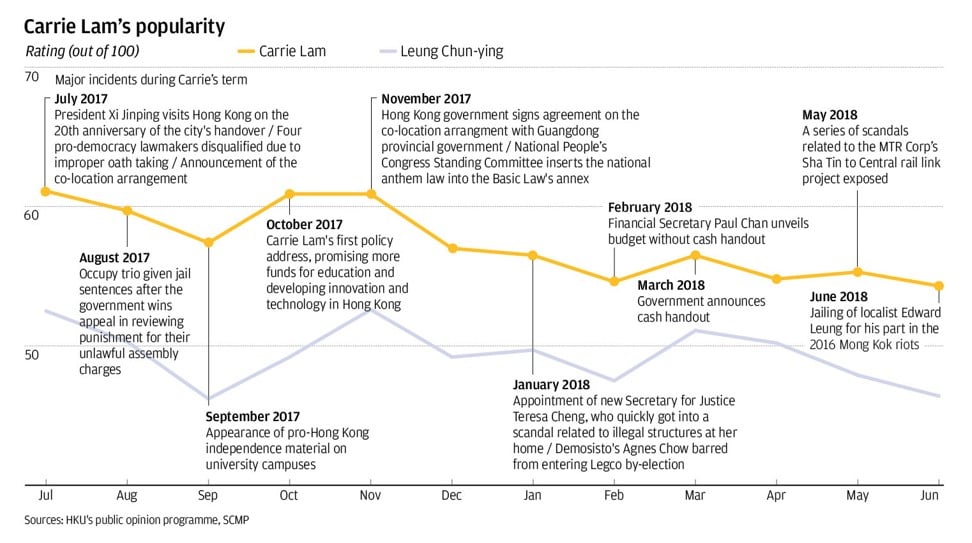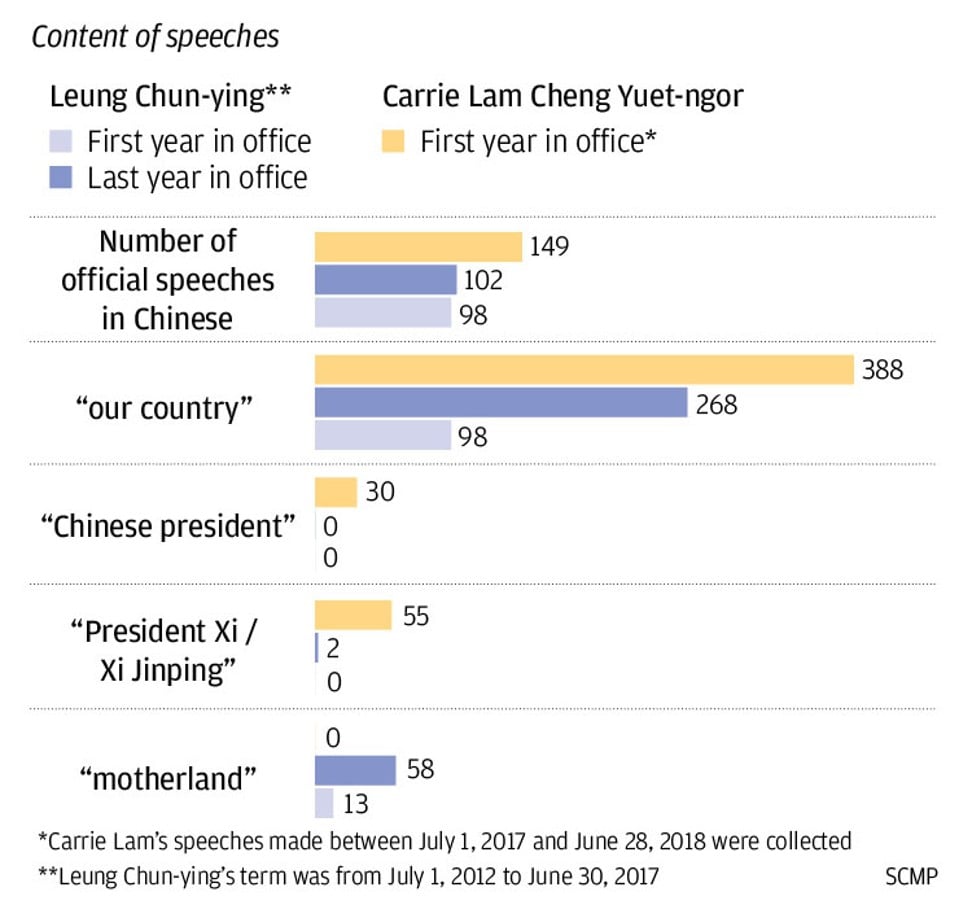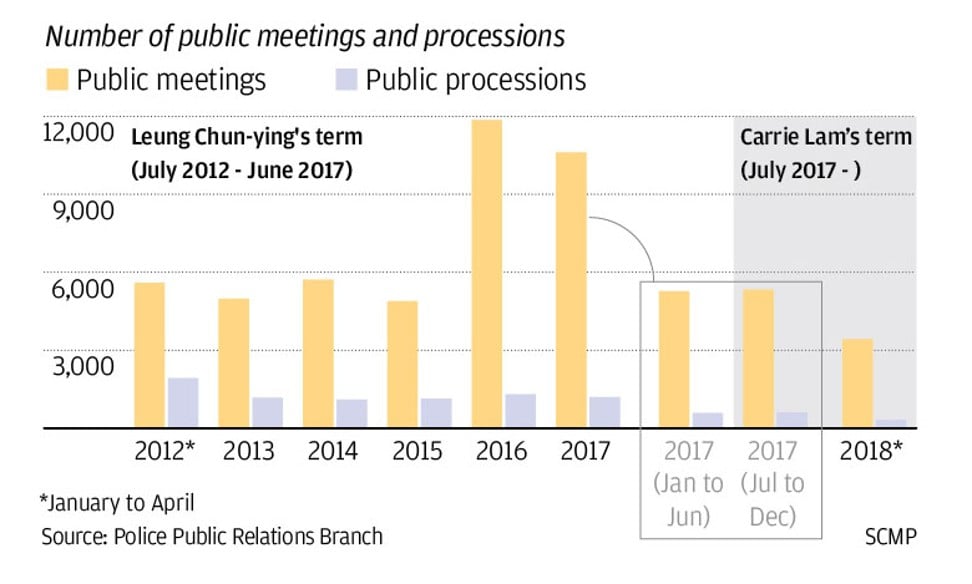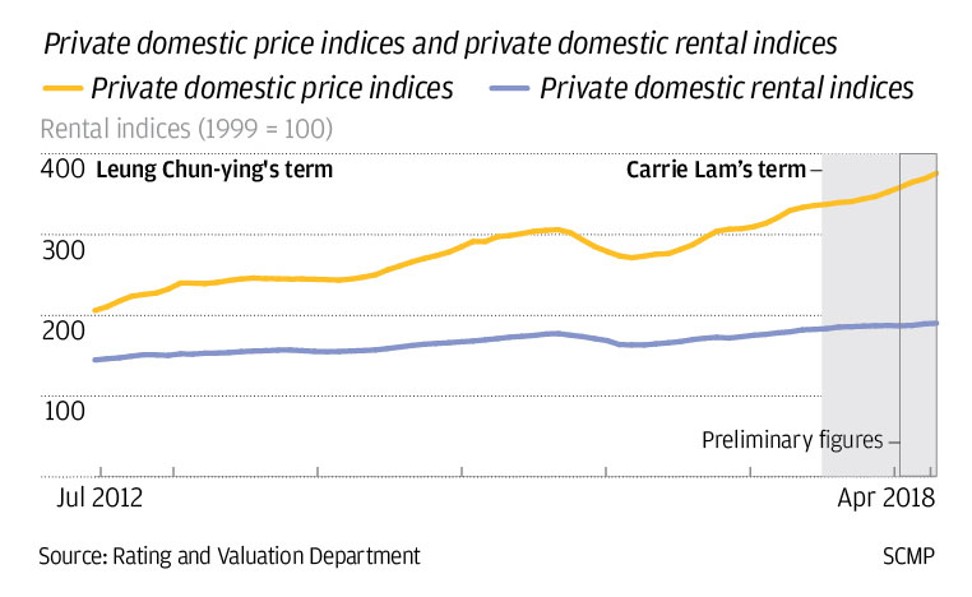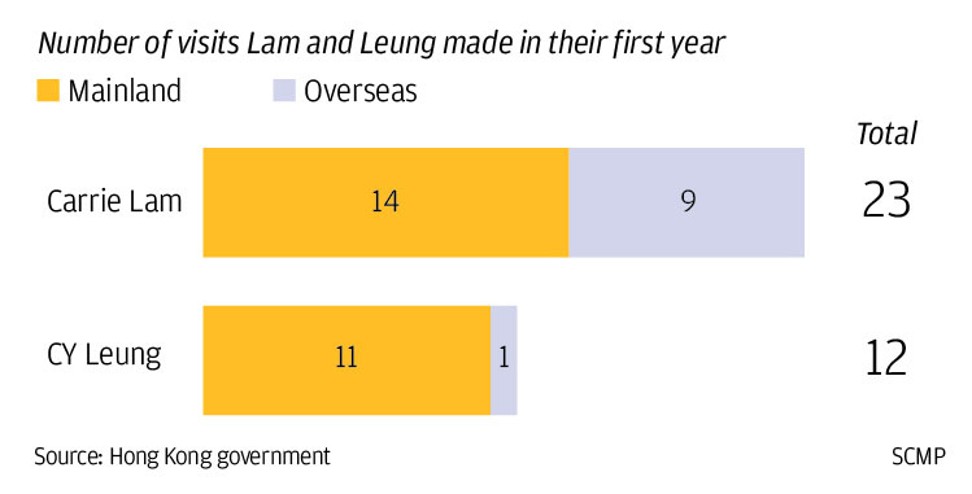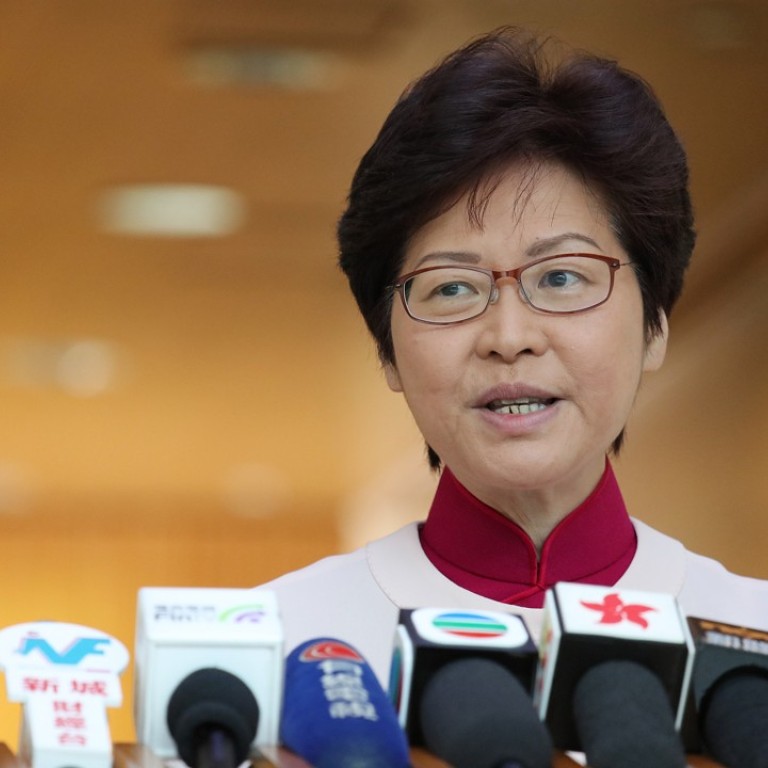
Can Hong Kong’s leader ever pull off a ‘Trump-Kim’ type reconciliation between the city’s political factions?
Carrie Lam Cheng Yuet-ngor has notched ‘quick policy wins’ in her first year in office amid sparkling economic numbers. But her promise to heal wounds in a divided society will take longer to realise
One year on, few remember that label.
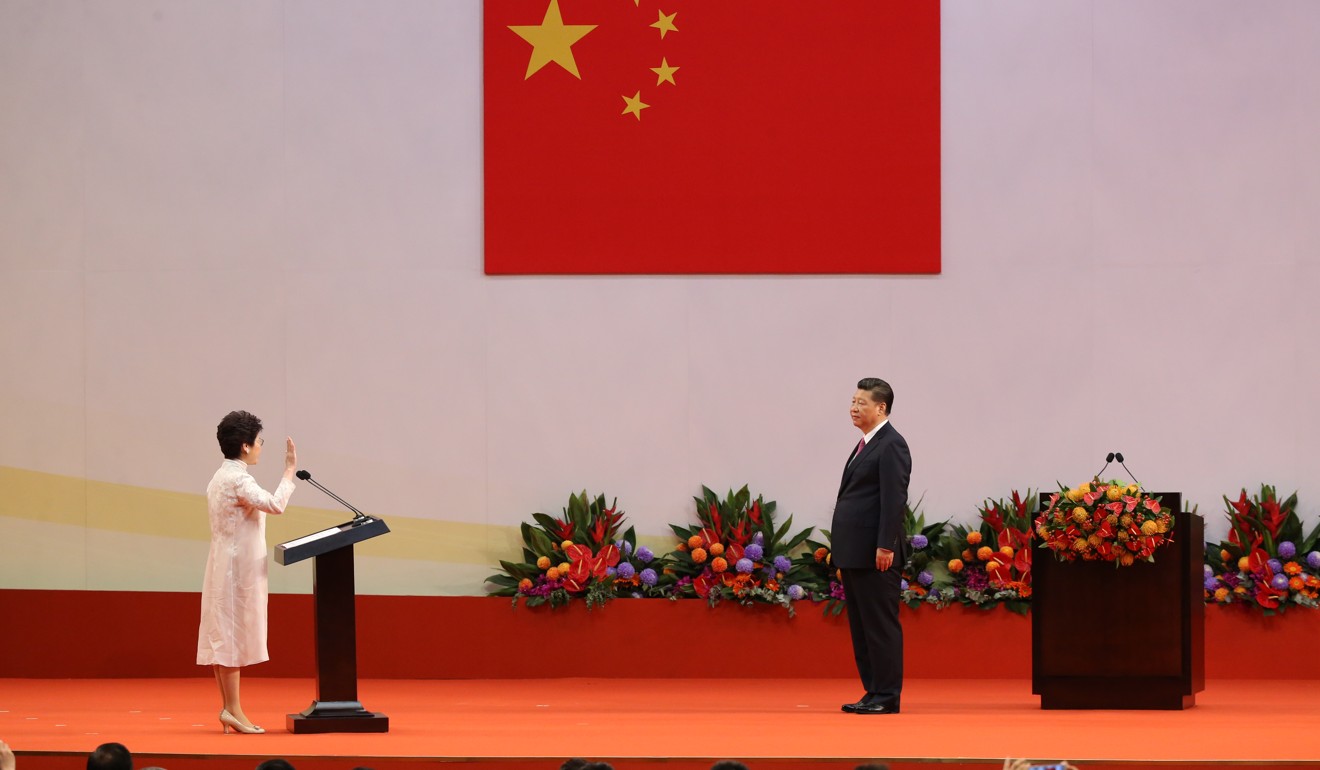
Lam cannot take all the credit, her critics will say. There has been no “great reconciliation” between the pro-Beijing and pro-democracy camps as her team had earlier touted.
Deep mistrust of the central government remains among sections of society. Hong Kong’s inability to focus on reforming the economy remains a key worry and rising housing prices a chief grouse.
Lau Siu-kai, former chief of the government think-tank Central Policy Unit, said: “Carrie Lam has been doing a good job of not being CY. But it is an overstatement to say she has been able to achieve ‘great reconciliation’.
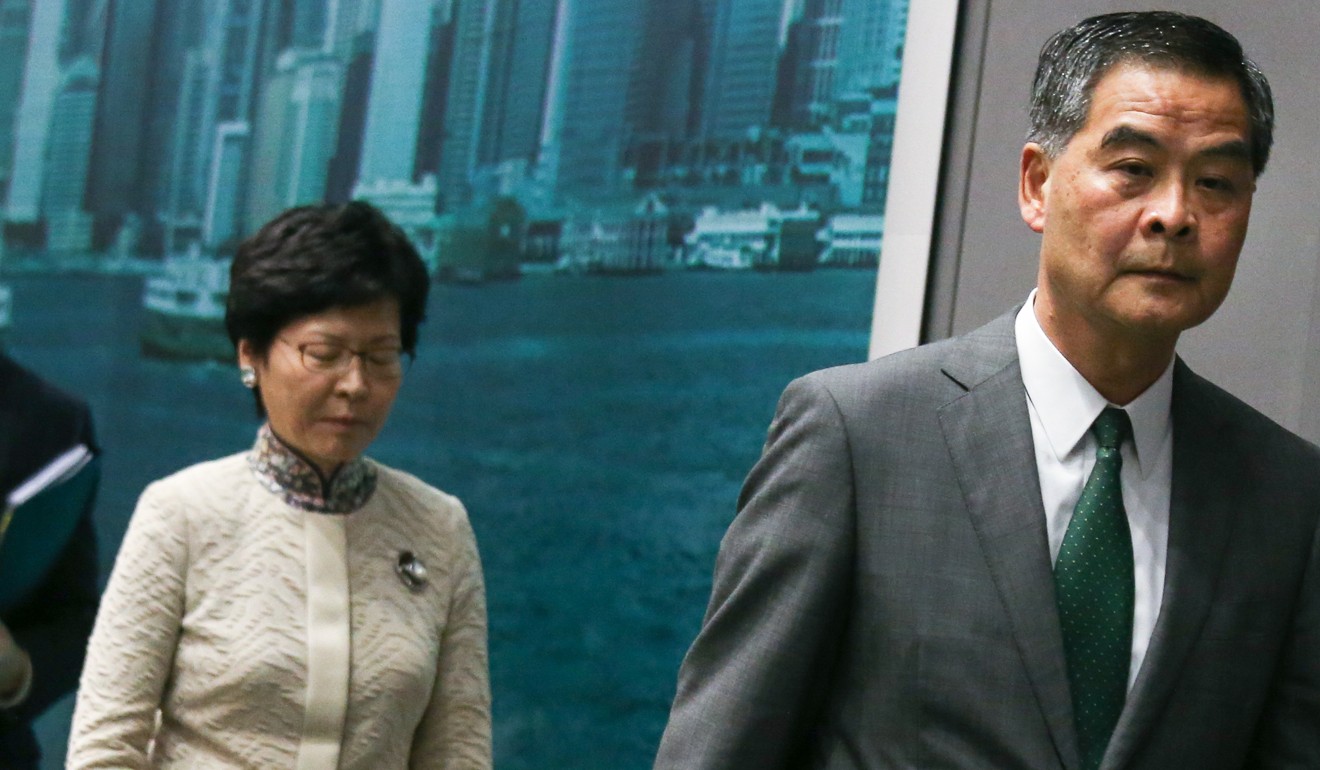
“If great reconciliation was achieved, we should have seen improving relations and closer cooperation between the pan-democrats and the pro-establishment camp as well,” said Lau, who is also vice-president of The Chinese Association of Hong Kong and Macau Studies, a semi-official think tank based in Beijing.
Raymond Mak Ka-chun, a governor at the middle-of-the-road political group Path of Democracy, echoed Lau’s view. “I don’t see there being any ‘great reconciliation’ strategy.”
“Largely, she has not been tested on that front,” Lau said.
“Unlike CY, she doesn’t have to deal with political reforms either.”
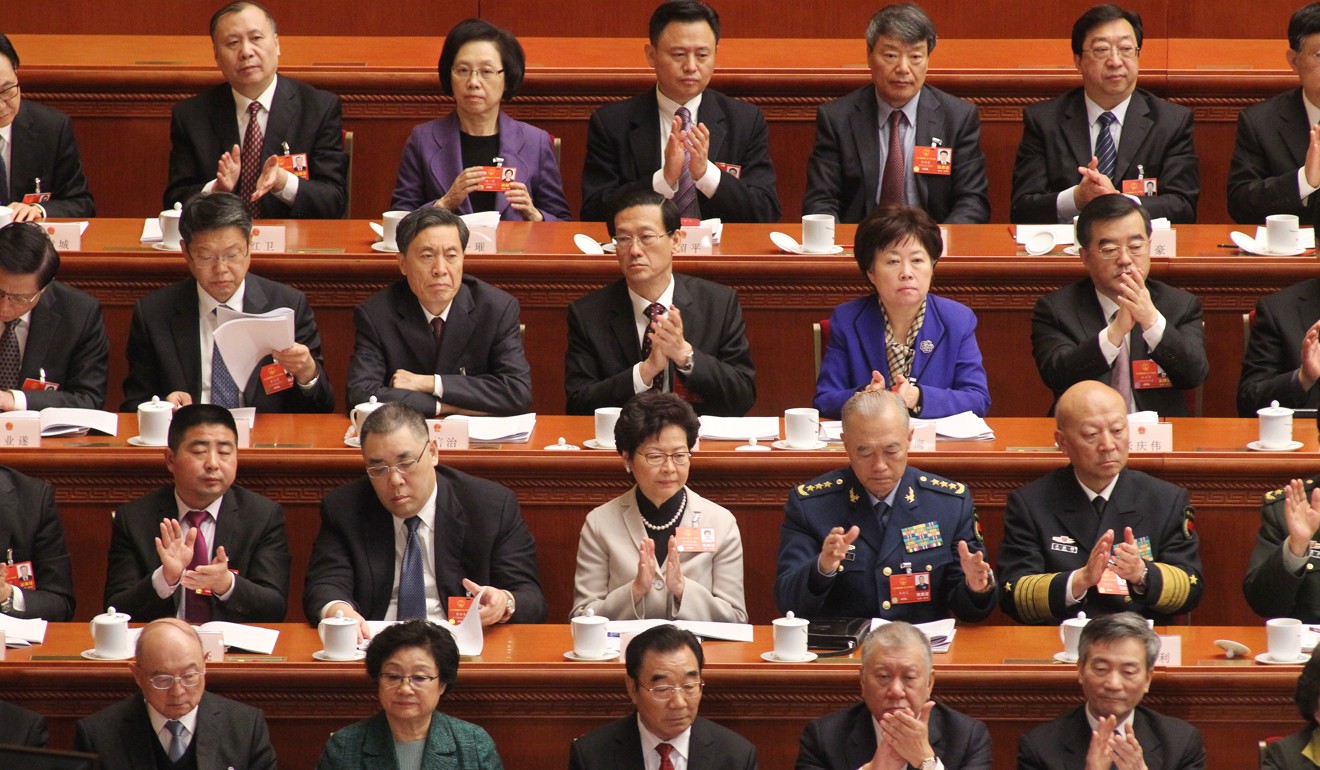
‘Quick wins’
But Lau said Lam and her administration were clever enough to quickly change the narrative to focus on “several quick wins in policies”.
Hong Kong can be a ‘powerful connection point’ for Belt and Road
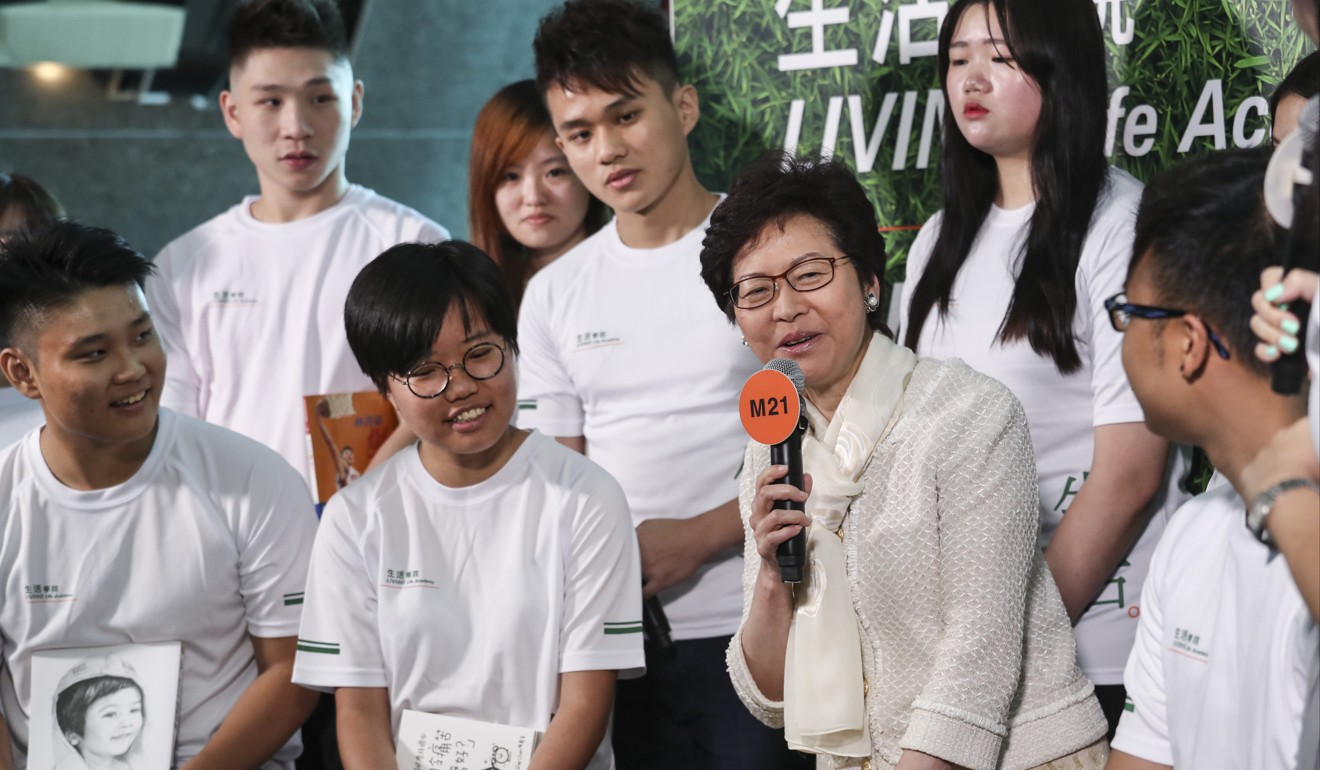
A Commission on Children has been set up. Her government has also pushed forward a plan to extend the statutory paternity leave from three to five days.
A Youth Development Commission member, Nixie Lam, also a Tsuen Wan district councillor, said: “If you try not to look at everything with politically coloured lens, Carrie Lam is an ‘action person’ and she can deliver.”
Asked if she was concerned about developers’ reactions, the chief executive replied: “Why do you care so much about how the developers see it? Why do you not care about the views of the public?”
She scored some populist points with the remark. But the leader of the opposition Civic Party, Alvin Yeung Ngok-kiu, pointed out Lam had yet to tackle head-on the controversial issue of land supply in the city, which has fuelled a housing shortage and home prices skyrocketing beyond middle-class affordability.
At the same time, the average waiting time for a public rental flat was 5.1 years as of March, up from 4.6 years the previous March.
Lam kicked the can down the road, Yeung argued, when she gave the job of looking at new land supply to a special task force. “She has handed over the land supply issue to [the chairman] Stanley Wong Yuen-fai so she can hide behind her desk and do nothing,” he said.
Balancing demands on both sides
It backfired as critics – including her Cabinet member Regina Ip Lau Suk-yee – accused her of buying goodwill.
Lam blamed a colleague managing her Instagram account for adding the hyped-up hashtag.
But well before the donation, Lam had made a show of embracing pan-democrats by appointing former opposition lawmaker Ronny Tong Ka-wah to her cabinet, and former Democrat Law Chi-kwong as her labour and welfare minister.
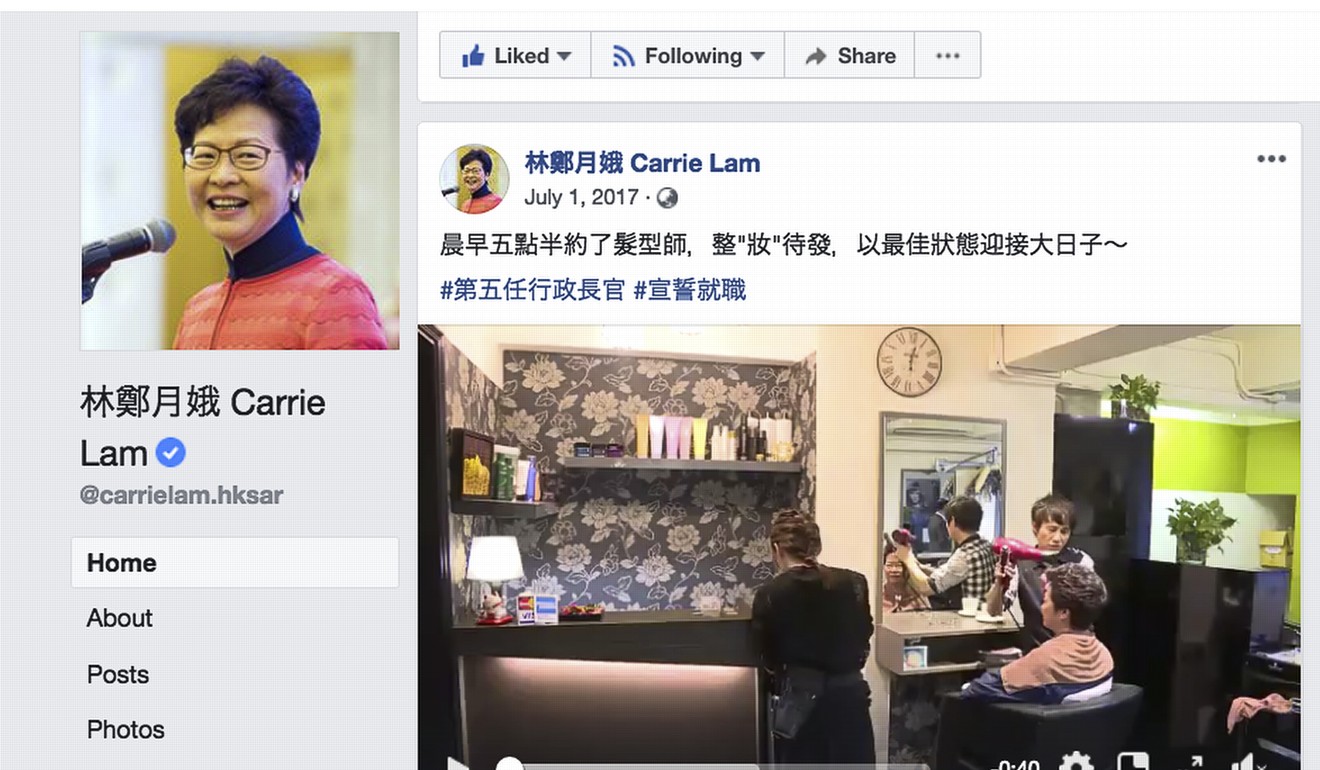
Tong, formerly with the Civic Party, was to serve as a bridge between the government and the pan-democrats, a role he conceded he had failed in. But his fellow pan-democrats were partly at fault, he said, adding: “It takes two to tango. You can lead a horse to water but you can’t make him drink.”
Tong’s acceptance of Lam’s appointment also cost him politically, as some radicals branded him “a turncoat from the pan-democracy camp”.
Democrats’ banquet gives city something to chew over
Democratic Party chairman Wu Chi-wai said the government’s relations with the camp had improved this past year – only because things “dived to an extreme low during the CY era”.
“Whether it will continue improving or not will depend on Carrie Lam’s policies. It is not for us alone to determine,” Wu said.
Lam’s ability to balance Beijing’s encroaching influence over the city with Hongkongers’ interest in defending their rights, freedoms and way of life will be tested as her term progresses.
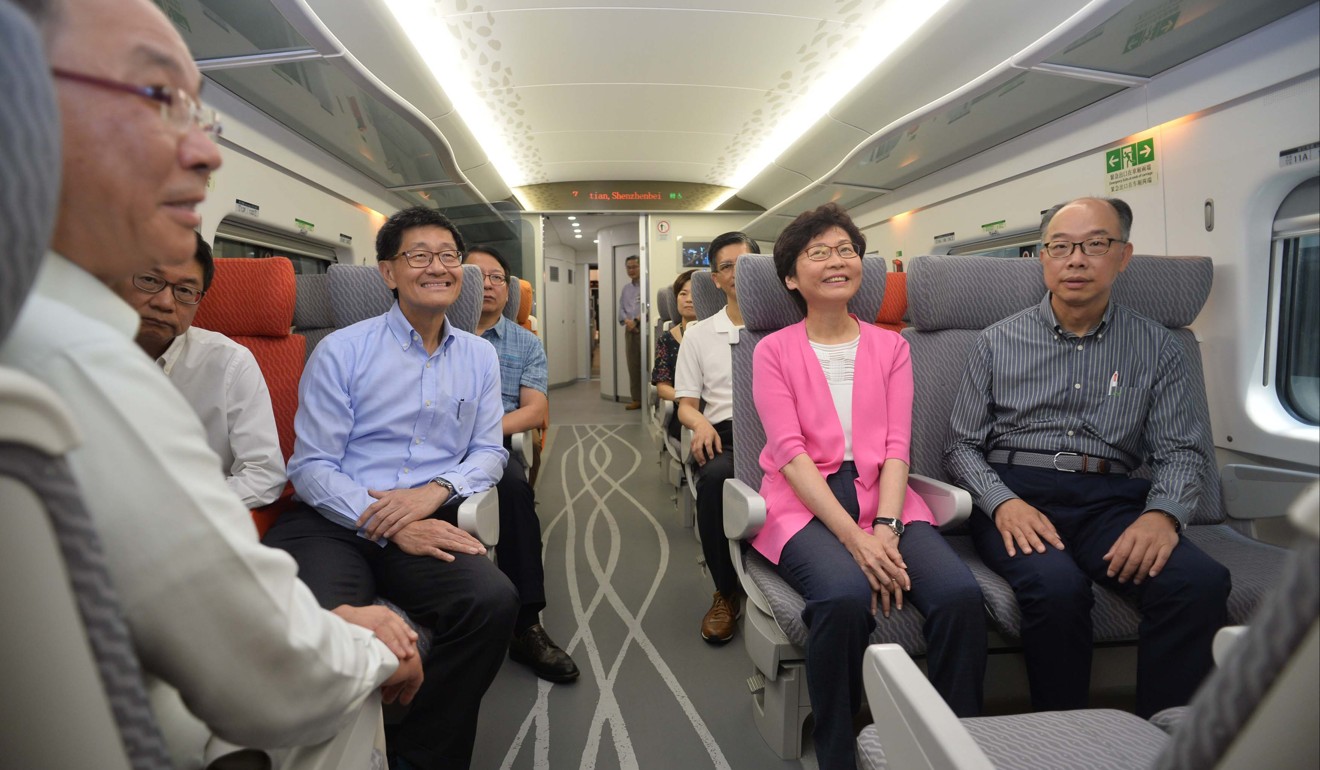
Wu warned Lam’s “honeymoon period” would not continue if she used the co-location bill as encouragement to push ahead with the contentious national security bill as required by Article 23 of the Basic Law.
Beijing has at times signalled its impatience at the lack of progress on the bill, which was shelved in 2003 after half a million Hongkongers took to the streets.
“It is understandable that the pro-democracy camp did not have an upper hand in opposing the joint-checkpoint proposal as some citizens might think the high-speed rail link would benefit them,” Wu said.
But Article 23 touched on the core values of Hongkongers, he said. “If Lam forcibly pushes ahead with the bill in the absence of any political reform, social grievances will fully unfold,” Wu warned.
Uniting a divided society
“It is possible to be too neglectful, too busy and too devoted to public service to forget one’s own private business ... Sometimes I am also so busy ... and have no time to handle my private issues.”
Justice chief tight-lipped on whether she discussed Article 23 with officials
A Lam staffer, who spoke on the condition of anonymity, said: “She is sometimes very demanding and expects a quick response. I won’t say she is authoritarian, but she is very confident in her judgments and likes to take a very active part in the formulation and execution of a policy. I heard that life was much easier during CY’s time.”
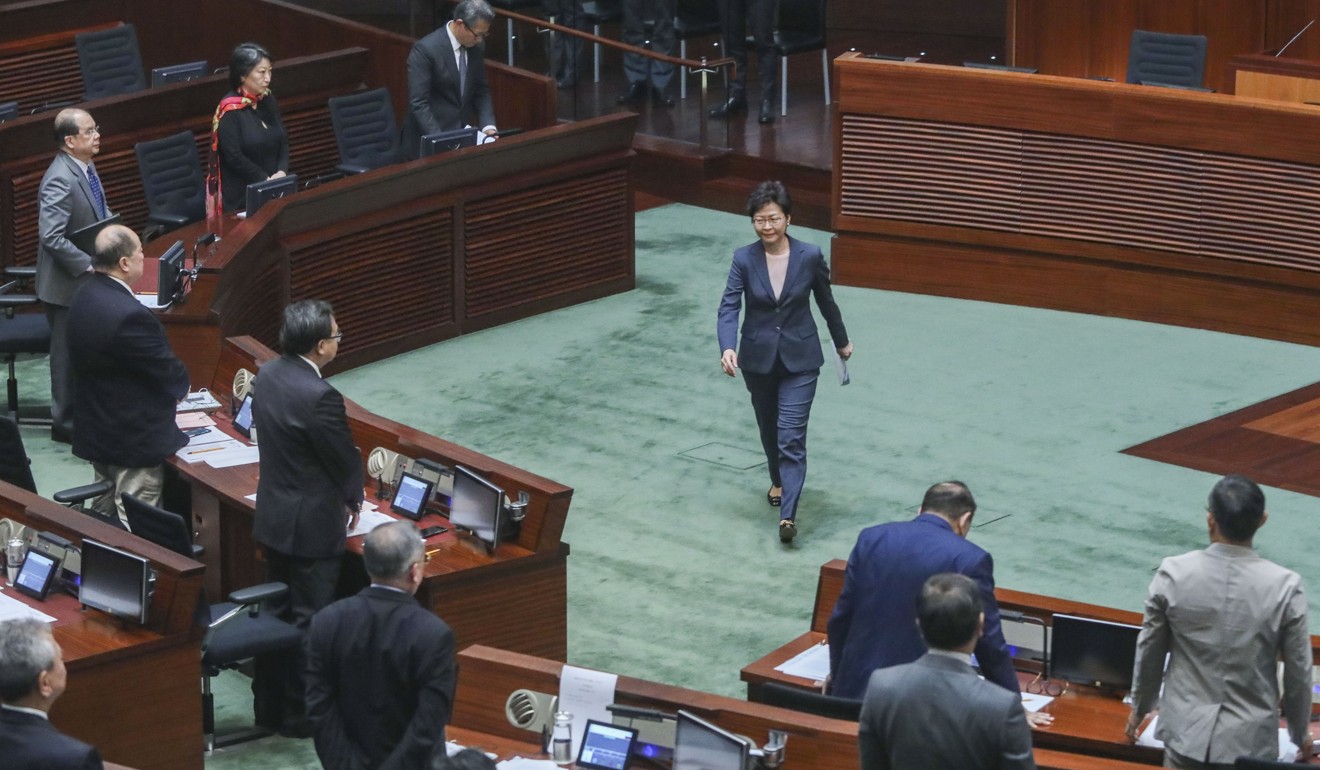
A subordinate who wanted to remain anonymous said: “She is a person who could not bear wasting a minute in her life.”
The person said there were times Lam grumbled if she arrived too early at the Legislative Council, which is just steps away from her office. So her subordinates rehearsed and timed their boss’ walking route, to ensure she would always arrive on the dot for meetings.
She is a person who could not bear wasting a minute in her life
While she can time her arrival with such precision, the year ahead is not as certain. The challenges of being the bridge to Beijing and also Hong Kong’s leader whom Hongkongers trust and respect remain. And the great reconciliation is still a work in progress.
Under Lam’s leadership, Tong was optimistic relations between the pan-democrats and Beijing could improve. After all, as he said: “Even Donald Trump and Kim Jong-un can sit together to talk.”




